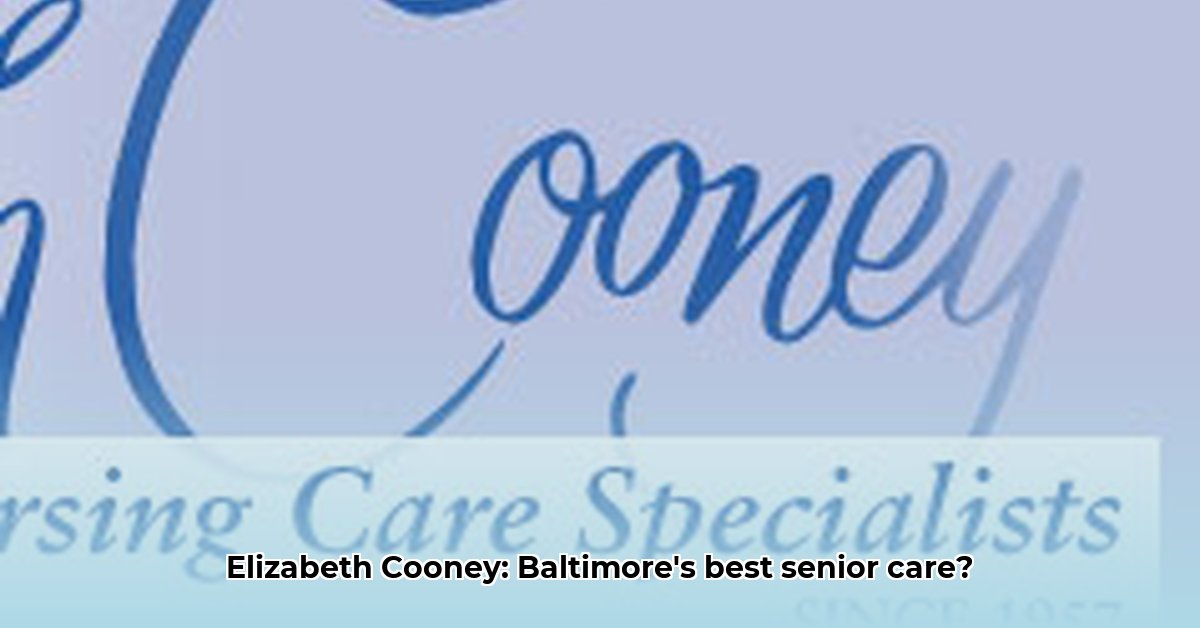
Finding the right senior care is a deeply personal and often stressful decision. For families in Baltimore, Elizabeth Cooney Personnel Inc. is one option, but reviews reveal a significant disparity in client experiences. For more options, consider exploring other facilities like this assisted living facility. This review analyzes both positive and negative accounts to provide a balanced perspective, ultimately helping you make an informed choice for your loved one.
Positive and Negative Experiences with Elizabeth Cooney
Elizabeth Cooney receives praise for swift, compassionate care in crisis situations. Several families reported receiving crucial support during their loved one's final days, highlighting the agency's responsiveness and the dedication of certain caregivers. These positive experiences underscore the potential for exceptional care.
However, contrasting experiences also exist. Reports of missed appointments, caregiver no-shows, and communication breakdowns are significant concerns. These instances raise questions about the consistency of service and the potential for vulnerable individuals to go without necessary care. The lack of easily accessible contact information exacerbates these problems, increasing family stress and anxiety.
Unpacking the Discrepancy: Understanding the Variations in Care
The stark contrast in client experiences demands investigation. Is it simply random chance, or are there systemic issues affecting the quality of care? Several contributing factors merit consideration:
Inconsistency in Caregiver Training and Oversight: Variability in caregiver training and a lack of rigorous performance monitoring could lead to inconsistent service quality. Without adequate supervision, even highly skilled caregivers may struggle to maintain consistent performance amidst high demand.
Staffing Shortages: Insufficient staffing levels, especially during peak times, can create pressure leading to overworked caregivers and potential compromises in care quality. This is a common challenge facing the senior care sector.
Communication Breakdown: A lack of effective communication structures—both within the agency and between the agency and families—can contribute significantly to negative experiences. Delayed responses, unclear information, and insufficient support channels cause unnecessary worry and frustration.
Protecting Your Loved One: A Practical Guide to Selecting Senior Care
Choosing a senior care agency requires thorough due diligence. Here are actionable steps to protect your loved one:
Comprehensive Background Checks: Verify caregiver credentials, licenses, and conduct thorough background checks. Don’t hesitate to ask for multiple references and contact them directly.
Clear Communication Protocols: Establish clear communication channels from the start, specifying your loved one's needs, preferences, and any potential challenges. Ensure multiple methods to contact the agency (phone, email, etc.) are readily available and reliable.
Proactive Monitoring and Documentation: Maintain detailed records of all interactions, including appointments, conversations, and any issues encountered. This documentation serves as valuable evidence and aids in resolving potential problems.
Emergency Preparedness: Develop a clear and readily accessible emergency plan in collaboration with the agency. Establish protocols addressing unexpected situations and ensure a designated contact person.
Recommendations for Elizabeth Cooney: A Path Towards Improvement
To address the inconsistencies in service and regain client trust, several key improvements are necessary:
Invest in Strong Communication Systems: Implement a centralized, user-friendly communication system, including readily accessible contact information and proactive updates to families. Consider a secure online portal for scheduling, messaging, and updates.
Enhance Caregiver Training and Supervision: Invest in comprehensive and ongoing caregiver training, focusing on client interaction, communication, and emergency response protocols. Implement robust performance monitoring and regular supervision mechanisms.
Streamline Scheduling and Staffing: Optimize scheduling processes to minimize conflicts and ensure adequate staffing levels, especially during periods of high demand. Consider leveraging technology to improve efficiency.
Establish Formal Feedback Mechanisms: Implement a systematic feedback system, encouraging client reviews and actively using this information to improve services and address issues proactively.
The Broader Landscape: Challenges in Senior Care
Elizabeth Cooney's experiences highlight wider systemic issues within senior care. A critical need exists for enhanced industry standards, stronger regulatory oversight, and improved support systems for caregivers and families. Addressing these broader issues requires collaborative efforts from agencies, regulatory bodies, and policymakers.
Risk Assessment Matrix: Identifying and Mitigating Potential Issues
This table summarizes key risks associated with senior care agencies and the corresponding mitigation strategies:
| Risk Factor | Likelihood (Our Assessment) | Impact (Potential Severity) | Mitigation Strategies |
|---|---|---|---|
| Caregiver unreliability | High | Extremely High | Enhanced background checks, rigorous training, continuous monitoring & supervision |
| Communication breakdowns | High | High | Multiple communication channels, response protocols, secure online portals |
| Scheduling conflicts | Moderate | Moderate | Optimized scheduling software, automated reminders, flexible staffing solutions |
| Regulatory non-compliance | Low | Extremely High | Proactive compliance measures, regular audits, adherence to best practices |
This review provides balanced insights, recognizing that individual experiences vary. Thorough research and open communication are essential when selecting a senior care agency. Prioritize your loved one's well-being and make an informed decision.